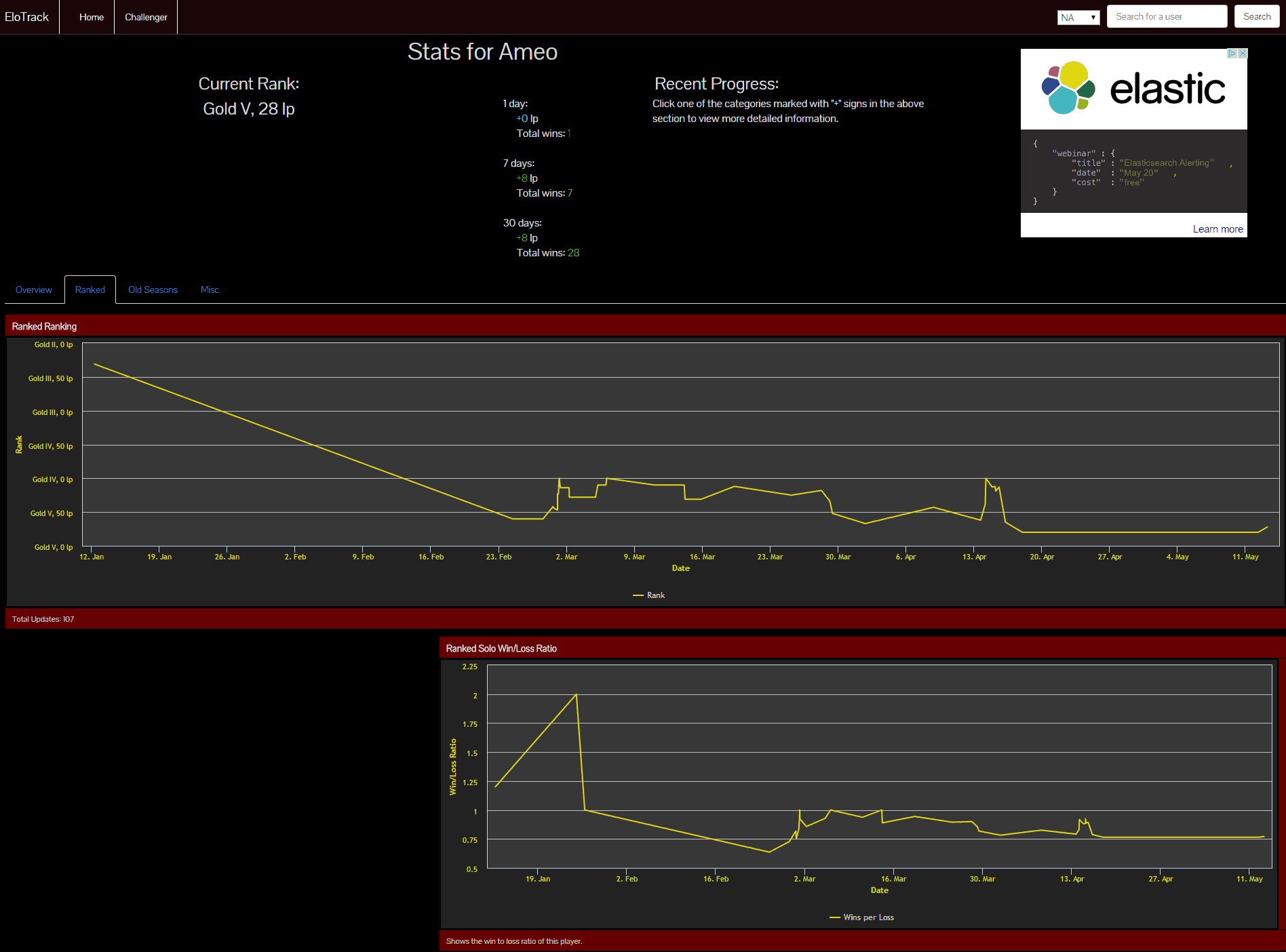Elotrack
Elotrack was a tool similar to osu!track designed to allow players of the game League of Legends to track their rank and other statistics about their account over time. It came second in a considerable collection of similar tracker tools including Robintrack and Polotrack.
Current Status
Elotrack is no longer in existence. First of all, League of Legends is an extremely popular game, there were several much more mature and popular tools such as op.gg and LeagueSpy that already filled the niche that this tool provided. As a result, this tool recieved basically zero attention or interest when I shared it, making my desire to work on and maintain it much smaller. My primitive web design skills at the time with the <table>-based UI, terrible color scheme, non-responsive design, and general lack of finesse and style didn't help either. Secondly, the API endpoint that was keeping Elotrack alive was deprecated and finally killed off entirely, taking Elotrack with it. It was originally hosted on the elotrack.net domain, but it has since expired and I've not renewed it.

Tech Stack
Elotrack was built with a Ruby backend using the Sinatra webserver framework. It used a MySQL database, some CLI scripts also written in Ruby and executed via Cron to generate some of the tables on the homepage and tablulate statistics, and had a frontend built with JQuery. Similarly to osu!track, much of the site content was generated by the Ruby with the resulting HTML being sent directly to the user. This was pretty much the last of my websites to be built in this manner; the rest were made using React and did most of their rendering client-side, pulling data from API endpoints.
Despite not receiving any real traffic or popularity from users tracking their own accounts' stats, automated scripts ran periodically to track the top players in all of League of Legend's regions. A pretty hefty amount of data ended up being collected, which prompted me to put in the effort to learn how to optimize the database with proper indices and come up with a better schema. Many of the things I learned while working on Elotrack including how to manage a full database migration and better administer relational databases have proven useful on other projects since.